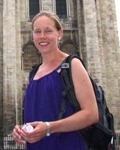2011
Alexandra K. Murphy
- Doctoral Candidate
- Princeton University

Abstract
As of the year 2000, for the first time in American history, suburbs became home to the greatest share of the American poor. Using one Pittsburgh suburb, three primary questions guide this ethnographic community study: (1) How is poverty in the suburbs socially organized?; (2) How is the social and economic life of the wider community organized around poverty in the suburbs?; and (3) To what extent are these suburban neighborhoods isolated from broader metropolitan networks? It examines three different actors: (1) poor residents, (2) institutions, and (3) local government. The aim is to show how the micro-dynamics of everyday life in the home, on the block, in the neighborhood, in local organizations, and within the municipality interact and shape the suburban poor experience.

